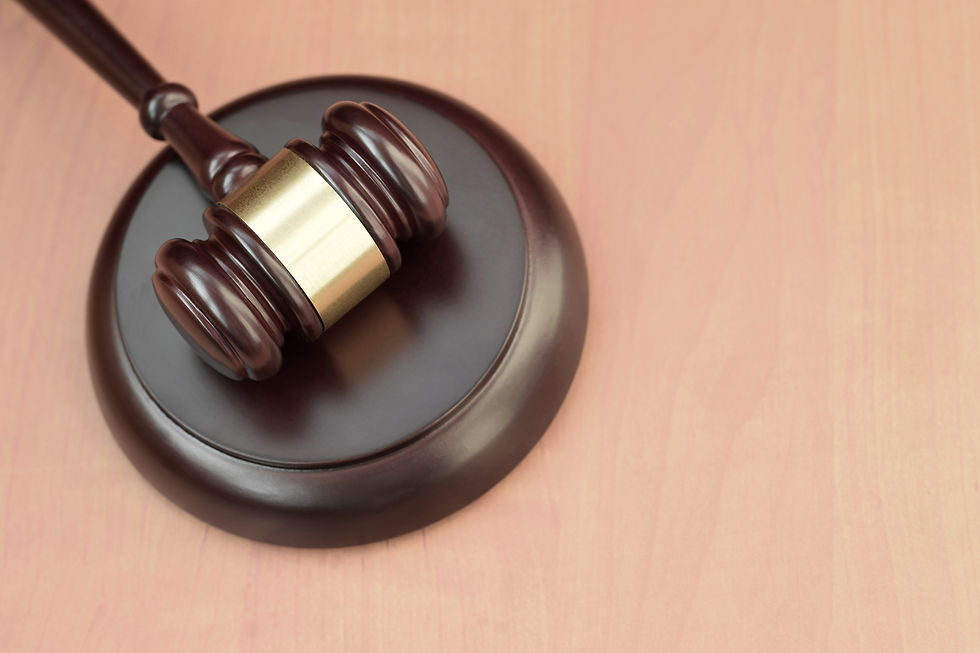LeRoy Law: Are You Accidentally Breaking Florida's Trespassing Laws? Understand Police, Property Lines, and Court Penalties Now!
- Joshua LeRoy
- Dec 6, 2024
- 4 min read

At LeRoy Law, we specialize in helping you navigate the often confusing world of Florida's trespassing laws. As a West Palm Beach Trespassing Attorney, I understand that sometimes, you might find yourself on the wrong side of the law without even realizing it. Trespassing can happen to anyone, whether you're taking a shortcut through a neighbor's yard or exploring an abandoned property. The consequences, however, can be quite serious.
Understanding the legal penalties associated with trespassing is crucial. From potential criminal charges to the impact on your criminal record, knowing what you're up against can make all the difference. Let's look at the legal consequences of trespassing charges and how they can affect you.
Important Tips on Legal Consequences of Trespassing Charges
· Understand the difference between a misdemeanor and a felony trespassing charge.
· Be aware of potential fines, probation, and community service as penalties.
· Know that a civil lawsuit can be filed by the landowner for damages.
Who is Joshua LeRoy?
As an experienced West Palm Beach Trespassing Attorney, I have dedicated my career to defending individuals facing legal consequences of trespassing charges. With a deep understanding of Florida Trespassing Laws Guide, I can help you navigate the complexities of criminal law and protect your property rights. For more information about me, feel free to visit my profile.
I invite you to explore my insights and experiences by reading my blog on Medium. It's a great resource for anyone looking to understand more about legal defense strategies and the intricacies of court proceedings.
What Are the Penalties for Trespassing in Florida?
In Florida, trespassing can lead to a range of penalties, depending on the circumstances. A simple trespass might be classified as a misdemeanor, but if the trespass involves a dwelling or a structure, it could escalate to a felony. The penalties can include fines, probation, and even community service. Understanding these potential outcomes is crucial for anyone facing such charges.
· A misdemeanor trespass can result in up to 60 days in jail and a $500 fine.
· A felony trespass can lead to up to 5 years in prison and a $5,000 fine.
· Additional penalties may include restitution to the landowner for any damages caused.
How Can a Criminal Defense Attorney Help?
Engaging a criminal defense attorney Florida trespassing can be a game-changer when facing trespassing charges. An experienced attorney can help you understand the charges, negotiate with law enforcement, and represent you in court proceedings. They can also work to minimize the impact on your criminal record and explore options for legal defense.
· They can challenge the evidence and the circumstances of the arrest.
· They can negotiate plea deals to reduce charges or penalties.
· They can provide guidance on how to avoid future criminal charges.
What Should You Do If Charged with Trespassing?
If you find yourself charged with trespassing, it's important to act quickly and wisely. First, understand the nature of the charges and the potential legal penalties. Then, seek the assistance of a qualified criminal defense attorney Florida trespassing to help you navigate the legal system and protect your rights.
· Do not admit guilt or make statements without legal counsel.
· Gather any evidence or witnesses that can support your case.
· Follow all legal advice and court orders to avoid further complications.
Could This Happen to You? A Hypothetical Case
Imagine you're out for a walk in your neighborhood and decide to take a shortcut through a vacant lot. Unbeknownst to you, the lot is privately owned, and the owner has recently posted "No Trespassing" signs. A neighbor sees you and calls the police, leading to your arrest for trespassing.
In this scenario, you could face legal consequences of trespassing charges, including a potential misdemeanor charge. With the help of a West Palm Beach Trespassing Attorney, you could argue that the signs were not clearly visible or that you had no intent to trespass, potentially reducing or dismissing the charges.
Here are some resources used while researching this page!
· Florida Trespassing Laws Guide - A comprehensive guide to Florida's trespassing laws, detailing legal definitions, penalties, and exceptions.
· Understanding Trespass to Land Law - An informative Wikipedia article explaining the concept of trespass to land, including historical context and legal implications.
Frequently Asked Questions
1. What is considered trespassing in Florida?
Trespassing in Florida involves entering or remaining on someone else's property without permission. This can include land, buildings, or vehicles. For more details, you can refer to the Florida Trespassing Laws Guide.
2. Can trespassing charges be dropped?
Yes, trespassing charges can be dropped if there is insufficient evidence, if the property owner decides not to press charges, or if a criminal defense attorney Florida trespassing successfully argues a defense such as lack of intent or permission.
3. What are the long-term effects of a trespassing conviction?
A trespassing conviction can result in a permanent mark on your criminal record, which can affect employment opportunities, housing applications, and more. It's important to address these charges seriously and seek legal assistance.
4. How can I avoid trespassing charges?
To avoid trespassing charges, always respect property boundaries and posted signs. If you're unsure whether an area is private, it's best to err on the side of caution and avoid entering. Understanding Understanding Trespass to Land Law can also provide valuable insights.
Disclaimer: LeRoy Law tries to ensure the accuracy of this article. However, Florida Statutes change, case law changes, and as such, errors may occur. LeRoy Law assumes no responsibility for any errors or omissions in this article. LeRoy Law encourages you to utilize our links to relevant Florida Statutes. Contact my office at [561-220-0022] if you have any questions or require legal assistance.



Comments